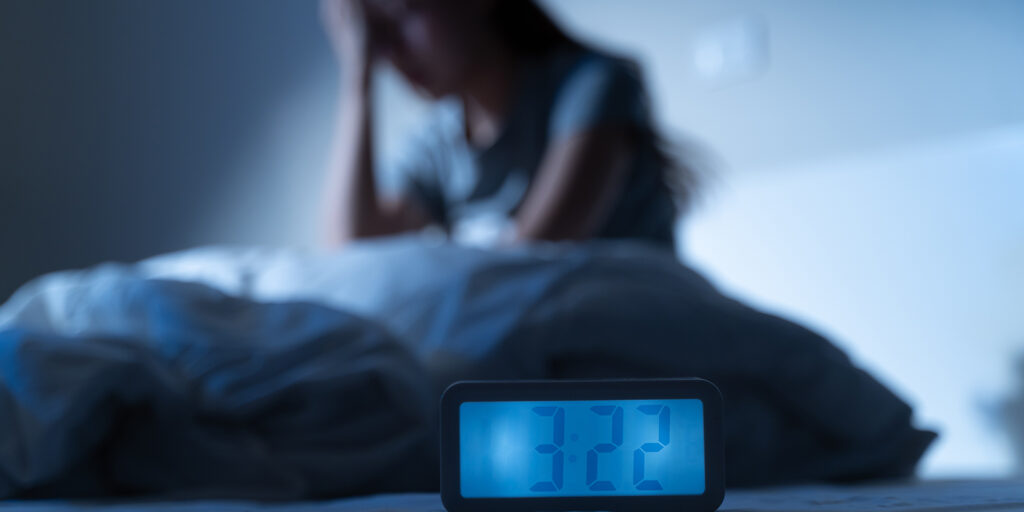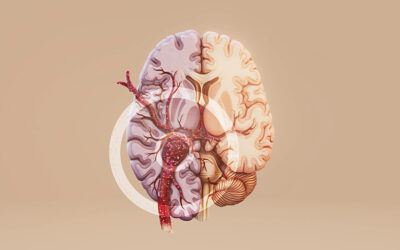Sleep Disorders: Types, Causes, Symptoms & Treatment Options

Sleep is one of the body’s most essential functions, which helps restore energy, supports brain activity, and maintains overall physical health. Yet, for millions of people, restful sleep remains elusive. From struggling to fall asleep at night to waking up feeling unrefreshed, sleep disorders can take many forms and impact nearly every aspect of daily life. While occasional sleeplessness is common, chronic or disruptive sleep issues may point to an underlying condition. Understanding sleep disorders is the first step towards better health. In this article, we have discussed the types, causes, symptoms, diagnosis, and treatment options for sleep-related conditions, including insomnia, sleep apnea, and circadian rhythm disturbances. Let’s start by understanding the basics.
Table of Contents
ToggleWhat are Sleep Disorders?
Sleep disorders are medical conditions that interfere with the ability to fall asleep, stay asleep, or wake feeling rested. These disruptions can be short-term or long-lasting and often affect energy levels, mood, memory, and concentration. While some sleep disturbances are occasional and mild, others can be chronic and significantly impair daily functioning.
Sleep disorders may involve difficulty initiating sleep, irregular sleep-wake cycles, breathing interruptions during sleep, or abnormal behaviours while sleeping. Often, people living with these conditions are unaware of the underlying problem and may attribute their tiredness to stress or overwork.
Ignoring sleep problems can have long-term consequences, including increased risk of high blood pressure, diabetes, depression, and accidents due to fatigue. Early recognition and proper management are key to restoring healthy, restorative sleep.
Common Sleep Disorders
Sleep disorders affect people in different ways – from struggling to fall asleep to waking up tired even after a full night in bed. Here are the most common types:
Insomnia
Insomnia is one of the most common sleep disorders. It involves difficulty falling asleep, staying asleep, or waking up too early. Insomnia can be short-term (due to stress, travel, or illness) or chronic, lasting for weeks or longer. Insomnia often impacts concentration, mood, and energy levels.
Sleep Apnea
Sleep Apnea is a condition where breathing repeatedly stops and starts during sleep. Many people with sleep apnea are unaware of the interruptions but experience excessive tiredness and poor concentration during the day. The most common type is obstructive sleep apnea, caused by a blocked airway. Other forms include central sleep apnea (related to brain signalling) and complex sleep apnea, which involves a mix of both.
Circadian Rhythm Disorders
It occurs when the body’s internal clock doesn’t match the natural day-night cycle. This can result in sleep occurring at odd hours or poor-quality rest. Common types include delayed sleep phase disorder (falling asleep very late), shift work disorder (linked to night or rotating shifts), and jet lag disorder after long-distance travel.
Other Sleep Disorders
- Restless Leg Syndrome (RLS): A strong urge to move the legs, especially at night, making it hard to fall asleep
- Narcolepsy: Sudden and uncontrollable sleep attacks during the day, despite adequate night-time rest
- Parasomnias: Abnormal behaviours during sleep, such as sleepwalking, talking in sleep, or night terrors
Read more- Pulmonary Oedema: All You Need to Know
Common Symptoms of Sleep Disorders
The signs of a sleep disorder may vary depending on the underlying condition, but many symptoms tend to overlap. These issues often interfere with daily activities, mental focus, and long-term health, yet many people dismiss them as normal tiredness or stress. Some of the most common symptoms include:
- Difficulty falling asleep or staying asleep
- Waking up too early and being unable to fall back asleep
- Loud snoring, choking, or gasping sounds during sleep
- Frequent night-time awakenings
- Daytime fatigue or sleepiness, even after a full night’s sleep
- Irritability, anxiety, or low mood
- Difficulty concentrating or memory issues
- Headaches or dry mouth upon waking
- Restlessness or discomfort in the legs at night
- Unusual behaviours during sleep, such as walking, talking, or jerking movements
Note: While occasional sleep disturbances are common, experiencing these symptoms regularly may signal a serious underlying sleep disorder such as insomnia, obstructive sleep apnea, or circadian rhythm imbalance.
Causes of Sleep Disorders
Sleep disorders can arise from a combination of physical, psychological, environmental, and behavioural factors. Identifying the underlying cause is crucial for effective treatment and long-term relief.
Common causes of sleep disorders include:
- Poor Sleep Hygiene: Irregular sleep schedules, excessive screen time before bed, stimulants (such as caffeine), and sleeping in noisy or uncomfortable environments can all disrupt sleep.
- Stress and Mental Health Issues: Anxiety, depression, and chronic stress are closely linked with insomnia and poor-quality sleep. These conditions may keep the mind overstimulated, making it hard to relax and fall asleep.
- Medical Conditions: Health issues such as chronic pain, acid reflux, asthma, neurological disorders, and heart disease can interfere with restful sleep. Restless leg syndrome and narcolepsy are also medically rooted sleep disorders.
- Hormonal or Neurological Imbalances: Disruptions in melatonin production, thyroid dysfunction, or abnormalities in brain activity can disturb the sleep–wake cycle, leading to insomnia or circadian rhythm disorders.
- Sleep Apnea Causes: Obstructive sleep apnea is often linked to:
- Obesity
- Enlarged tonsils or adenoids
- Nasal congestion or deviated septum
- Sedative use and alcohol consumption
- Age-related muscle relaxation in the airway
- Lifestyle Habits: Shift work, frequent travel across time zones, or an inconsistent daily routine can confuse the body’s internal clock and lead to circadian rhythm disorders.
Understanding these causes can help guide personalised treatment, whether it involves medical intervention, lifestyle changes, or a combination of both.
Read more-Understanding Bronchiolitis: A Complete Guide for Parents
How Sleep Disorders Are Diagnosed
Diagnosing a sleep disorder involves more than just reporting feeling tired. Because many conditions have overlapping symptoms, a thorough evaluation is essential to identify the exact cause and determine the most effective treatment.
The diagnostic process typically includes:
- Medical History and Symptom Review: A detailed discussion about sleep habits, duration, timing, lifestyle, and associated symptoms helps narrow down possible conditions such as insomnia or sleep apnea.
- Sleep Diary: Patients may be asked to maintain a sleep log for 1–2 weeks, noting bedtime, wake time, night-time awakenings, and energy levels during the day.
- Physical Examination: A doctor may look for physical signs related to sleep apnea, such as enlarged tonsils, neck circumference, or nasal blockages, and assess for signs of other health conditions that could affect sleep.
- Polysomnography (Sleep Study): This overnight test monitors breathing, brain waves, heart rate, oxygen levels, and body movements while sleeping. It is the gold standard for diagnosing conditions such as obstructive sleep apnea and narcolepsy.
- Home Sleep Apnea Testing: For suspected obstructive sleep apnea, a simplified version of a sleep study may be done at home using portable equipment to record breathing and oxygen levels.
- Actigraphy: A wearable device, similar to a fitness tracker, that records movement and sleep patterns over several days, which is useful in diagnosing circadian rhythm disorders or insomnia.
Treatment Options for Sleep Disorders
Effective treatment for sleep disorders depends on the underlying cause, type, and severity of the condition. Many individuals benefit from a combination of behavioural strategies, medical interventions, and lifestyle adjustments.
1. Sleep Therapy and Behavioural Treatments
- Cognitive Behavioural Therapy for Insomnia (CBT-I): A structured, non-medication approach that helps change negative thoughts and habits that interfere with sleep. It is considered the most effective long-term treatment for chronic insomnia.
- Sleep restriction and stimulus control: Techniques that limit time in bed and strengthen the association between bed and sleep.
2. Medical Treatments
- For Sleep Apnea:
- CPAP (Continuous Positive Airway Pressure): Keeps airways open during sleep using a steady stream of air through a mask.
- Oral appliances: Reposition the jaw or tongue to prevent airway blockage.
- For Insomnia and Other Disorders:
- Short-term use of prescription sleep aids may be considered when behavioural therapy alone is not sufficient.
- Medications may also be used for restless leg syndrome or narcolepsy, based on diagnosis.
3. Improving Sleep Hygiene
Adopting healthy sleep habits can support treatment and prevent relapse:
- Maintain a consistent sleep schedule
- Avoid caffeine and heavy meals late in the day
- Create a dark, quiet, and cool sleep environment
- Limit screen time before bed
- Use the bed only for sleep, not for work or scrolling
4. Natural Remedies and Home-Based Support
- Natural remedies for insomnia include chamomile tea, lavender oil, meditation, and breathing exercises.
- Home remedies for sleep apnea may involve weight management, avoiding alcohol, sleeping on the side, and using a humidifier.
- Though helpful for mild symptoms, these should be used alongside medical care for lasting improvement.
How to Sleep Better: Everyday Habits that Support Restful Sleep
Good sleep isn’t just about treating a disorder, it’s also about developing sustainable habits that promote rest, relaxation, and recovery. Whether dealing with a diagnosed condition or simply struggling with occasional sleeplessness, the following tips can improve overall sleep quality.
1. Stick to a Consistent Sleep Schedule
Go to bed and wake up at the same time every day, even on weekends. This helps regulate the body’s internal clock and supports natural circadian rhythm.
2. Create a Relaxing Pre-Sleep Routine
Wind down before bed with calming activities such as reading, deep breathing, or a warm shower. Avoid stimulating tasks and electronic screens at least 30–60 minutes before bedtime.
3. Optimise Your Sleep Environment
Ensure your bedroom is dark, quiet, and cool. Use blackout curtains, white noise machines, or fans as needed. A comfortable mattress and pillow can make a big difference.
4. Be Mindful of What You Eat and Drink
Avoid heavy meals, caffeine, and alcohol close to bedtime. Opt for a light snack if needed, such as a banana or warm milk, to avoid waking up hungry.
5. Limit Daytime Naps
If naps are necessary, keep them under 30 minutes and avoid napping late in the day, as it can interfere with night-time sleep.
6. Stay Active During the Day
Regular physical activity promotes deeper sleep, but try to finish workouts at least a few hours before bedtime to avoid overactivation.
7. Get Natural Light Exposure
Spending time in natural daylight during the morning helps regulate sleep-wake cycles and improves melatonin production at night.
When to See a Sleep Specialist
Occasional sleep disturbances are common and often resolve on their own. However, when poor sleep becomes frequent, persistent, or begins to affect daily functioning, it may signal a deeper issue that requires expert evaluation. Consult a sleep specialist if you experience:
- Difficulty falling or staying asleep for more than a few weeks
- Loud snoring, choking, or gasping sounds during sleep
- Excessive daytime sleepiness despite spending adequate time in bed
- Unexplained morning headaches or dry mouth
- Mood changes, irritability, or trouble concentrating
- Symptoms of insomnia that do not improve with lifestyle changes
- Unusual movements or behaviours during sleep (e.g. sleepwalking or jerking limbs)
- A history of fatigue-related accidents or near misses
In conditions such as obstructive sleep apnea, chronic insomnia, or circadian rhythm disorders, early diagnosis and personalised treatment can prevent long-term complications and dramatically improve quality of life.
If sleep problems are affecting your or your loved one’s daily life, don’t wait for them to worsen. Call Graphic Era Hospital at 18008897351 to consult with our team of experts in pulmonology, ENT, neurology, and behavioural medicine, based on your specific sleep concern.
Frequently Asked Questions (FAQs)
What is sleep apnea and how is it different from regular snoring?
Sleep apnea is a serious sleep disorder where breathing repeatedly stops during sleep. Unlike regular snoring, sleep apnea can cause loud gasping, fragmented sleep, and serious health risks if untreated.
Can sleep apnea kill you if left untreated?
Yes. Untreated sleep apnea increases the risk of high blood pressure, heart disease, stroke, and even sudden cardiac events, especially during sleep.
What are the main types of sleep apnea?
The main types include obstructive sleep apnea (due to airway blockage), central sleep apnea (due to disrupted brain signals), and complex sleep apnea (a mix of both).
What is the best treatment for insomnia?
Cognitive behavioural therapy for insomnia (CBT-I) is considered the most effective long-term treatment. Improving sleep hygiene and using natural remedies like herbal teas or meditation can also help in mild cases.
What are the symptoms of insomnia I should watch out for?
Common symptoms include trouble falling asleep, waking up during the night or too early in the morning, and feeling unrefreshed despite spending enough time in bed.
By Specialities
- Bariatric Surgery
- Cancer Care
- Cardiology
- Dental
- Dermatology
- Diabetes & Endocrinology
- Endocrinology and Diabetes
- ENT (Ear Nose Throat)
- Eye Care
- Gastroenterology
- Haematology
- Health Awareness
- Health Care
- Health Tips
- Hematology
- Hepatology
- Internal Medicine
- Mental Health and Behavioural Sciences
- Metabolic
- Neonatology
- Nephrology
- Neurology
- Nutrition & Dietetics
- Obstetrics & Gynaecology
- Oncology
- Ophthalmology
- Orthopaedics
- Paediatric
- Physiotherapy & Rehabilitation
- Plastic and Reconstructive Surgery
- Psychology
- Pulmonology
- Rheumatology
- Spine
- Urology
Recent Posts
- A Complete Guide to Blood Clots in the Brain
- Heart Attack: Symptoms and Treatment
- World Obesity Day 2026: Understanding, Preventing, and Managing Obesity
- Bacterial and Viral Pneumonia: Causes, Symptoms, and Treatment Options
- World Hearing Day 2026: Empower Yourself to Protect and Improve Your Hearing
Need expert medical advice?
Share your details and our healthcare specialists will reach out to assist you.
By proceeding, you acknowledge and agree to our Privacy Policy, Terms of Use, and Disclaimer.




















